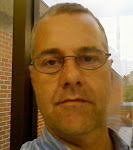I'm going to tie two of yesterday's sessions together here with a similar theme, not only because I couldn't possibly do justice here to either presentation in this space but also because I heard reasons for a bit of optimism from both guys.
The first was Leo Laporte, who told a bland chicken-anchored luncheon crowd (a reporter actually used that "anchored luncheon" phrase in a story once and I can't resist using it here) about his trials and machinations in creating an audience around tech news for tech geeks. He noted how services like Google and Facebook serve up pre-selected audiences for advertisers, how pod casts are lame because they really are too much work (which I have been saying for years and I'm not even that smart) and how journalism is a holy calling - thank you, Leo - essential to a healthy democracy.
But the point he made that resounded with me is something I've been telling my colleagues and cohorts for years to keep their spirits up. As he put it: "There is always going to be a need for storytellers, people who can gather facts and explain them."
At the end of the day, we heard from Paul Saffo, who is a scary smart futurist from Stanford who advises the world's rich and powerful. His presentation, which I will be reviewing and following up on for some time, centered on the creative destruction technological change wreaks on economic systems, how people initially overestimate the impact of new technology then, when it starts to take off, drastically underestimate the impact. It was insightful, and funny as heck.
Saffo noted how the media world is in a time of many great uncertainties in which breaking news bulletins about earthquakes are being instantly delivered by machines and the power of the press is being replaced by the ability everyone now has to publish whatever they want.
The positive message: "Don't worry, we'll figure it out." What he meant by that is that if we as an industry can embrace uncertainty, learn from our failures, understand that change is never a linear process and realize that, to succeed, we need to learn how to harness the smallest creative act of our audiences - see Google 411, below - we will prevail and again thrive. That it will take some time, but the business model will work itself out.
As I've been telling my colleagues: Society has always needed scribes, as long as there's been crops and kings and culture, and that's never going to go away.
Subscribe to:
Post Comments (Atom)




No comments:
Post a Comment